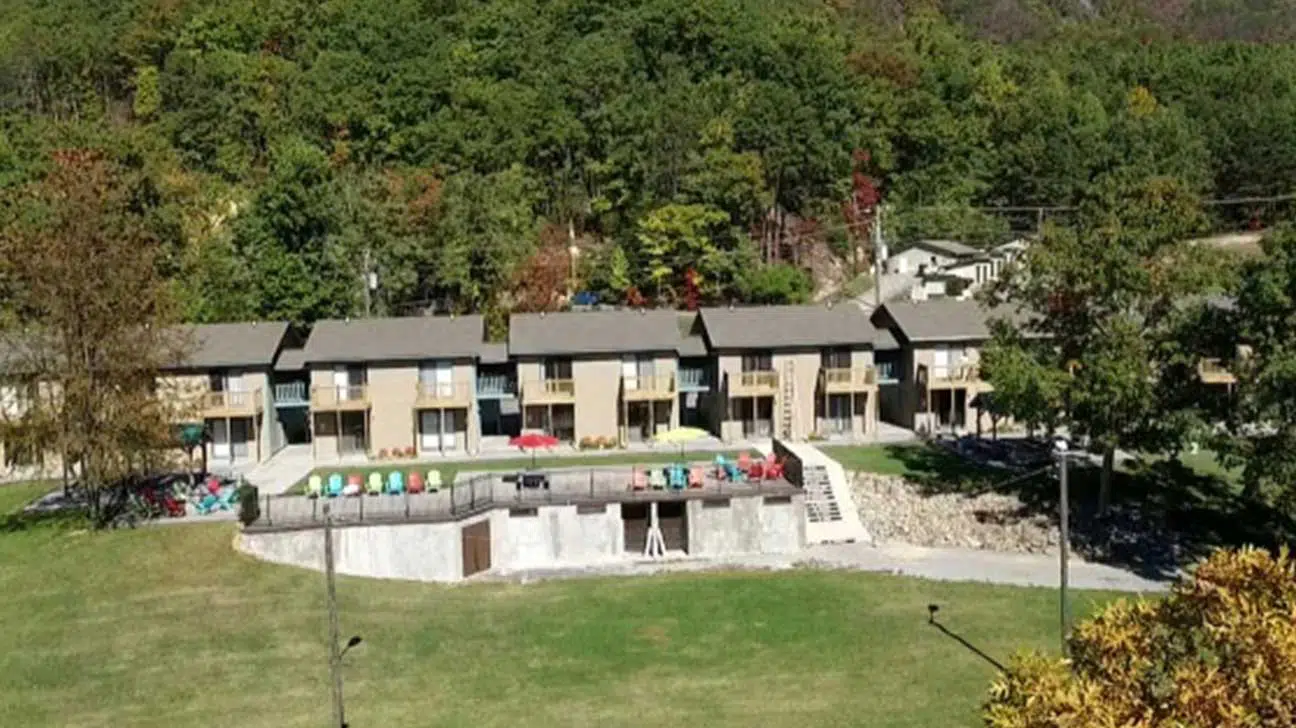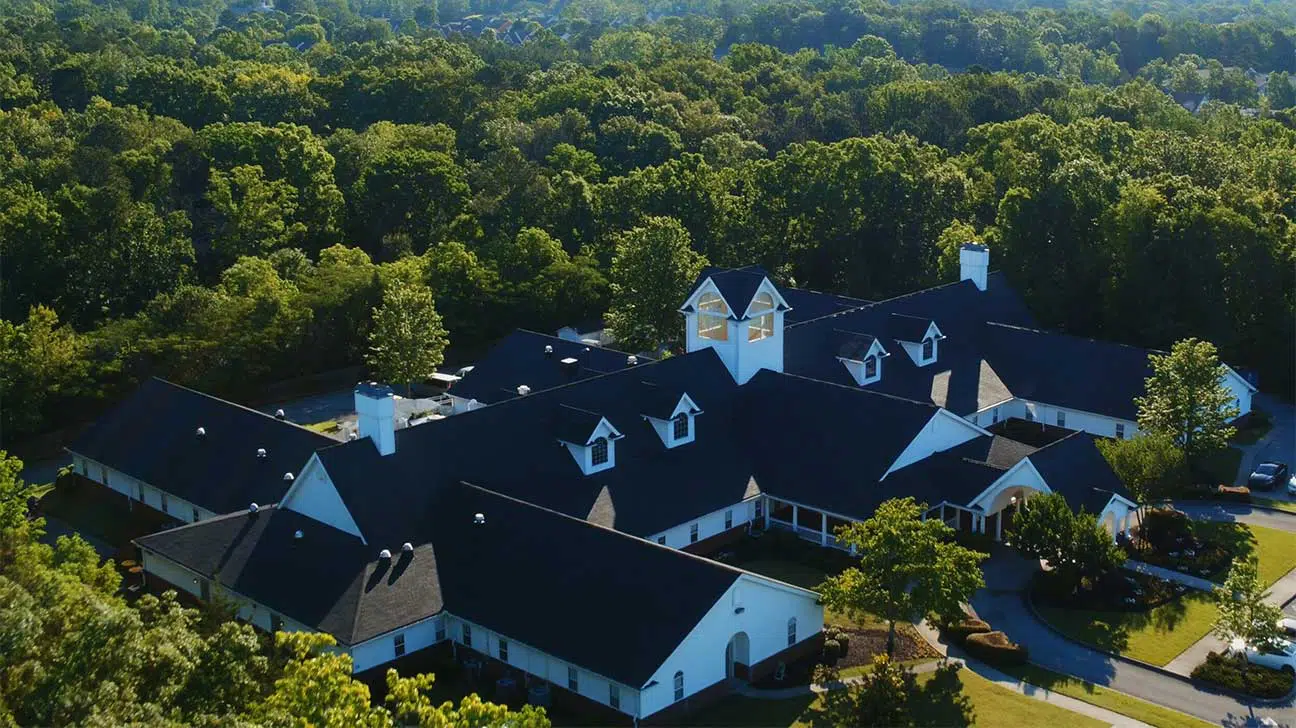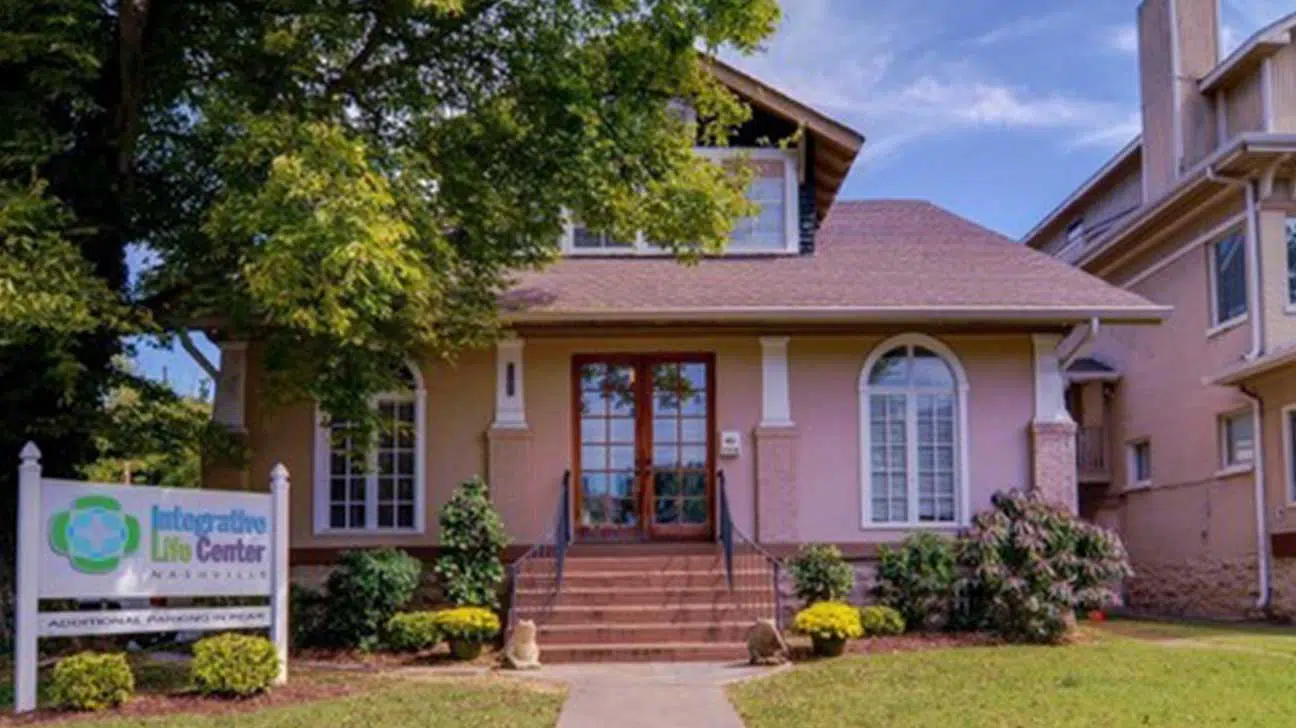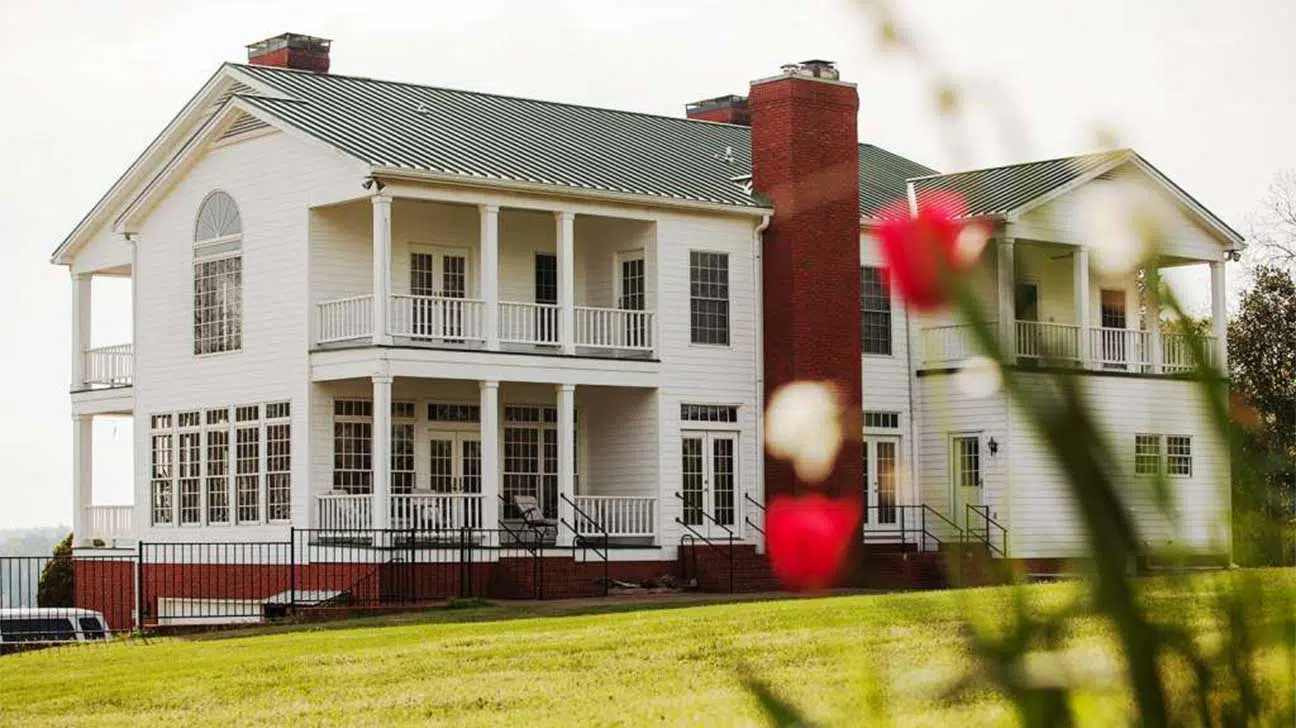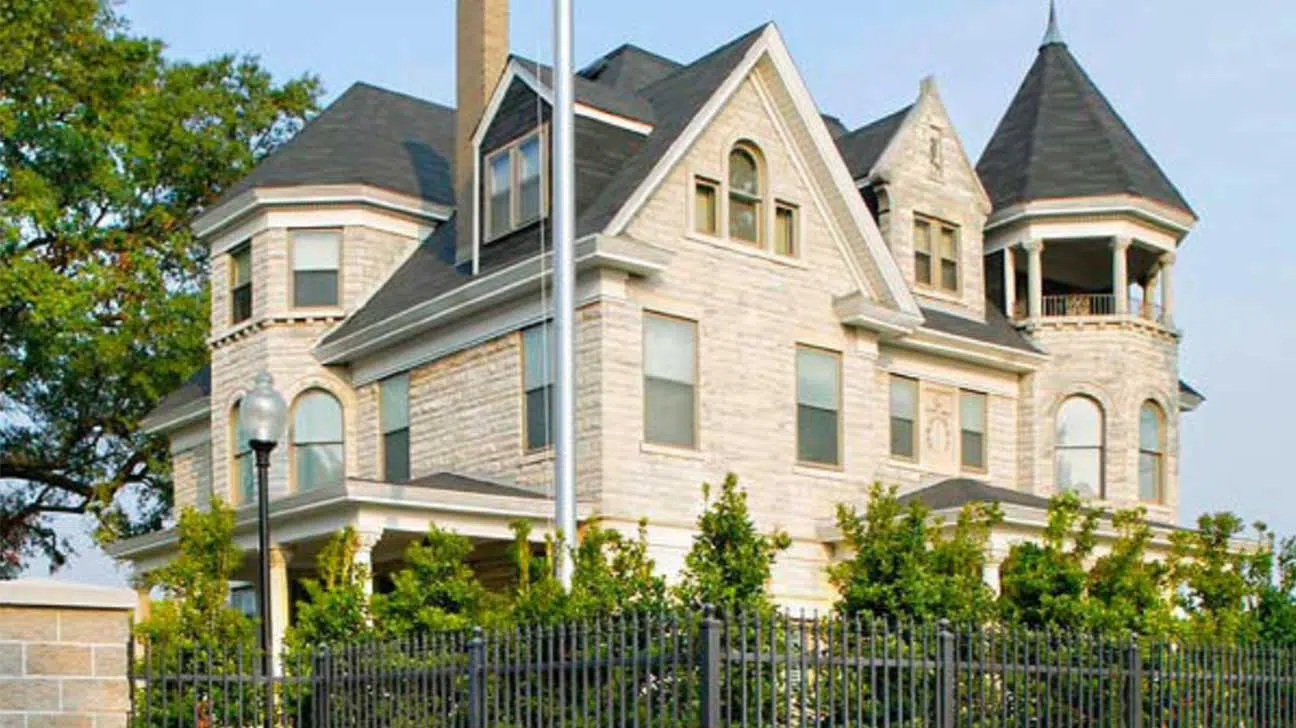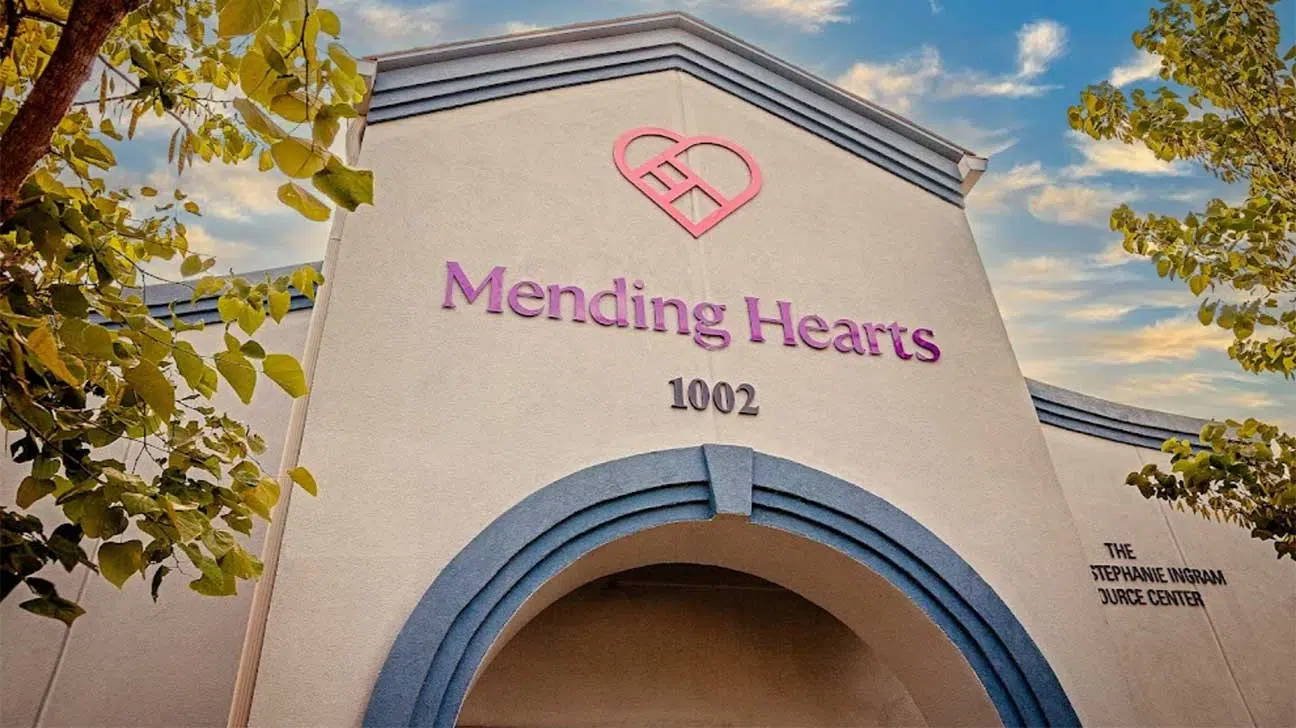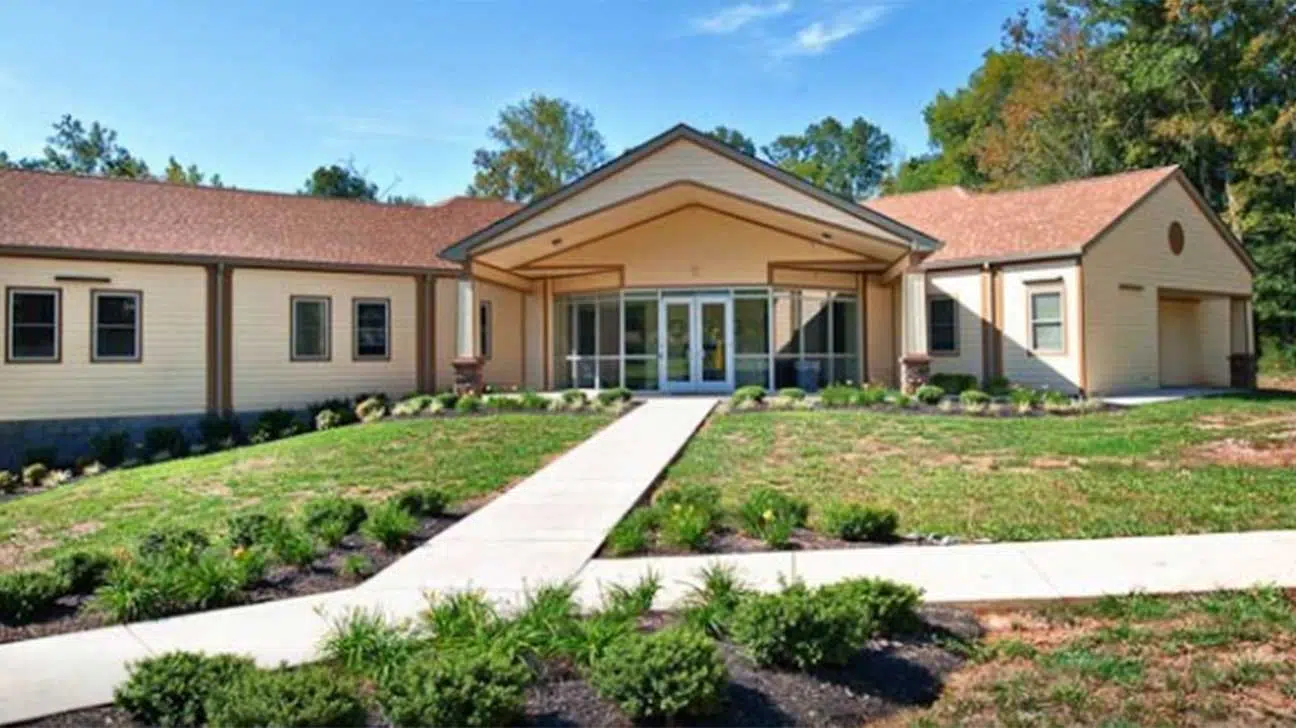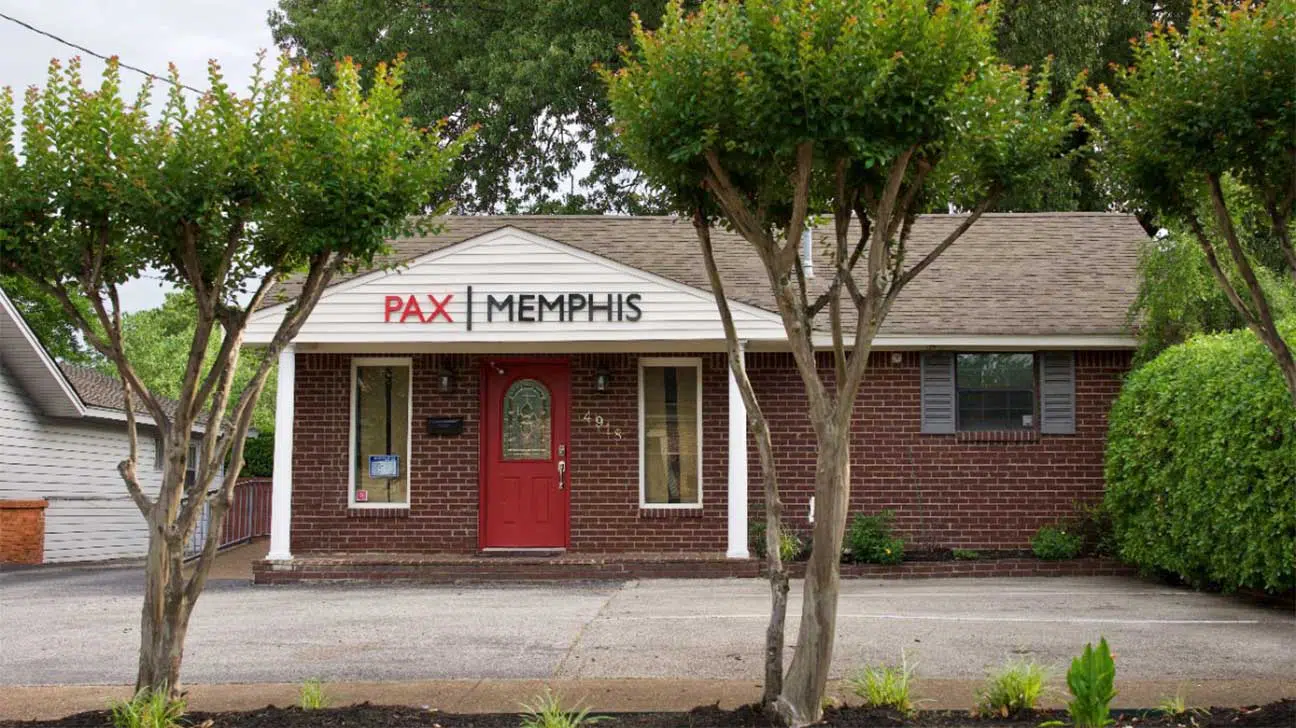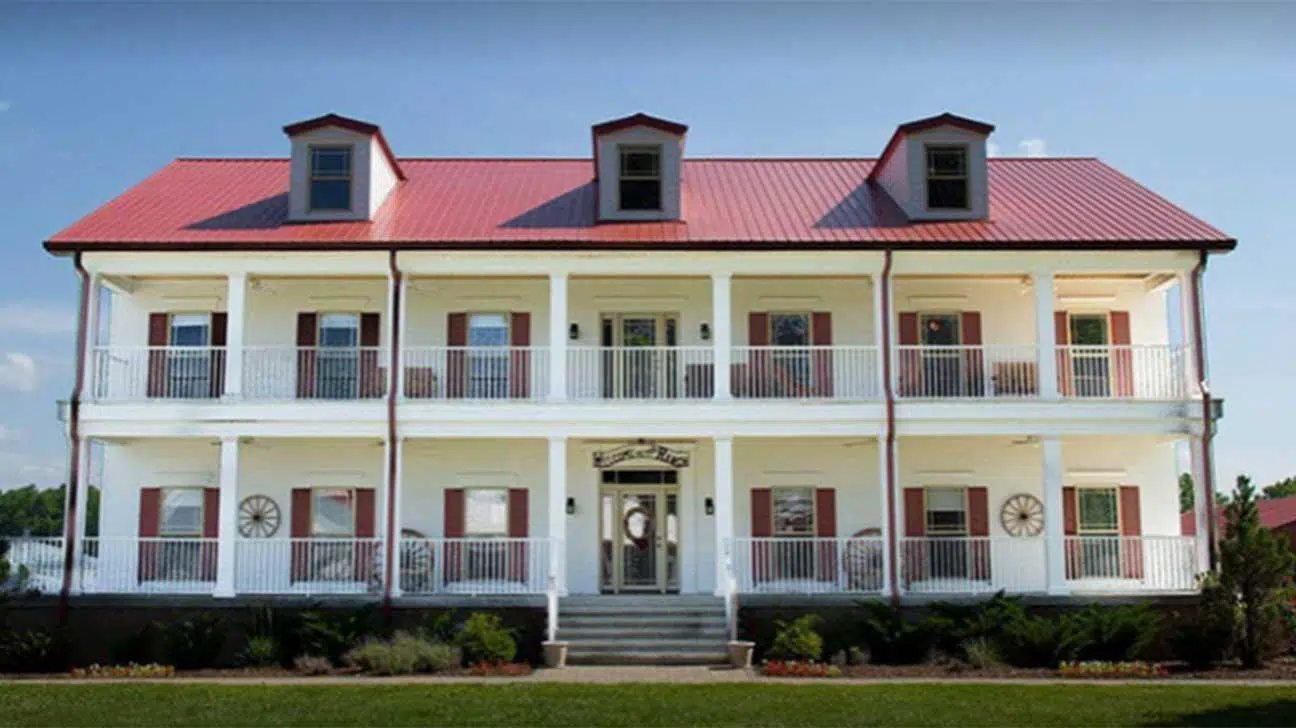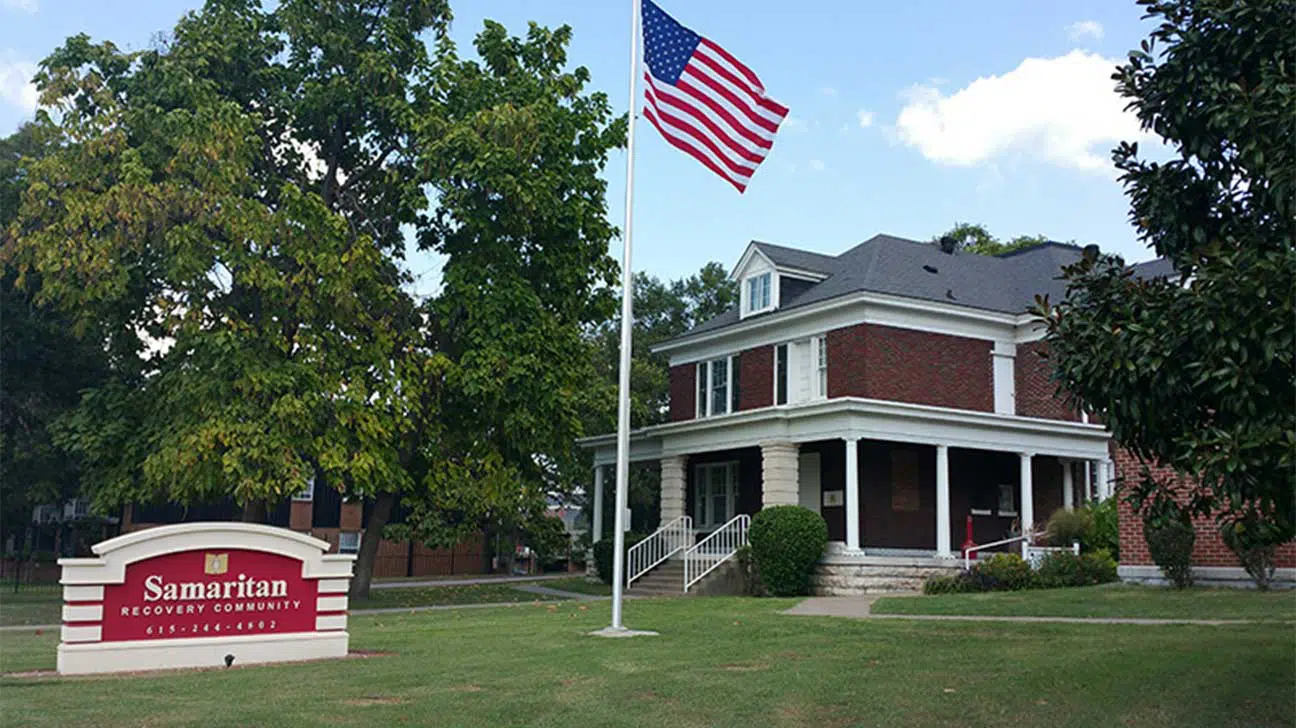
Dual diagnosis treatment programs are unique in that they address the underlying issues of both substance use disorders and mental health disorders.
For example, if you have both a substance use disorder and an anxiety disorder, you may benefit from a dual diagnosis program that treats both simultaneously.
In Tennessee, several treatment facilities offer specialized programs for treating a dual diagnosis, otherwise known as co-occurring disorders.
List Of Dual Diagnosis Treatment Centers In Tennessee
The Tennessee rehab centers on this list feature accreditation, certification, licensure, and other marks of quality.
1. English Mountain Recovery, Sevierville, Tennessee
This drug and alcohol addiction treatment center offers a co-occurring disorder treatment program with two locations for addiction treatment in Sevierville, TN.
English Mountain Recovery offers:
- trauma-informed hypnotherapy
- detox
- residential and inpatient treatment
- an intensive outpatient program (IOP)
- gender-specific programs
- a veterans program
- a family program
- an alumni program
Treatment for substance abuse and mental health issues here is:
- LegitScript-certified
- backed by the National Association for Alcoholism and Drug Abuse Counselors (NAADAC) membership
- accredited by the Commission on Accreditation of Rehabilitation Facilities (CARF)
Location and contact information:
1096 Alpine Dr.
Sevierville, TN 37876
(877) 309-9963
2. Focus Treatment Centers, Chattanooga, Tennessee
Focus Treatment Centers offers its co-occurring disorder addiction treatment program in Chattanooga, TN, with additional locations for substance abuse treatment in Knoxville, TN.
This substance abuse treatment center is backed by:
- certification from LegitScript
- accreditation from the Joint Commission
- a 4.6-star Google rating
Clients can get treatment for addiction and the following co-occurring mental illnesses:
- eating disorders
- depression
- anxiety
- post-traumatic stress disorder (PTSD)
- trauma
Location and contact information:
7429 Shallowford Rd.
Chattanooga, TN 37421
(800) 675-2041
3. Integrative Life Center, Nashville, Tennessee
Gender-specific residential treatment programs, partial hospitalization programs (PHP), IOP, and aftercare services are available here.
Integrative Life Center provides a dual diagnosis treatment program utilizing:
- dialectical behavioral therapy (DBT)
- cognitive behavioral therapy (CBT)
- holistic treatment
- relapse prevention therapy
- 12-step programming
- experiential therapy programs
This drug rehab center in Nashville, TN, offers treatment for eating disorders, trauma, and bipolar disorder with substance abuse.
Integrative Life Center has support from the National Alliance for Recovery Residences (NARR), the International Institute for Trauma and Addiction Professionals (IITAP), and more.
Location and contact information:
1104 16th Ave. S.
Nashville, TN 37212
(615) 378-8806
4. Magnolia Ranch Recovery, Pulaski, Tennessee
Many co-occurring disorders can be treated here.
The most common include attention-deficit/hyperactivity disorder (ADHD), anxiety, depression, obsessive-compulsive disorder (OCD), self-esteem issues, and behavioral issues.
A few of the therapy methods used in individual and group therapy include:
- DBT
- CBT
- psychosocial intervention
- adverse childhood experience (ACE)
- acceptance and commitment therapy (ACT)
- functional analytic psychotherapy (FAP)
- interpersonal therapy (IPT)
- mindfulness-based cognitive therapy (MBCT)
Magnolia Ranch drug rehab center near Lewisburg, TN, is:
- Joint Commission-accredited
- rated 4.7 stars on Google
- LegitScript-certified
Location and contact information:
111 Stripmine Rd.
Pulaski, TN 38478
(931) 342-3906
5. Memphis Recovery Centers, Memphis, Tennessee
This treatment facility in Memphis, TN, implements dual diagnosis and trauma therapy into its substance abuse treatment programs for adults and adolescents.
They offer treatment options such as:
- inpatient programs
- IOP
- standard outpatient treatment
- PHP
- family therapy
CARF accreditation, NAATP membership, and a 4.3-star Google rating support treatment services here.
Location and contact information:
219 N. Montgomery St.
Memphis, TN 38104
(866) 672-7378
6. Mending Hearts, Nashville, Tennessee
This is a long-term treatment program near Mt. Juliet, TN, for women. The center integrates co-occurring disorder diagnosis treatment and education with several of its recovery programs.
Treatment programs include:
- medical detox
- medication-assisted treatment (MAT)
- IOP
- peer support
- PHP
Supporting qualities of Mending Hearts include:
- CARF accreditation
- client testimonials
- evidence-based treatment
Location and contact information:
P.O. Box 280236
Nashville, TN 37228-0236
(866) 416-1909
7. Mirror Lake Recovery Center, Burns, Tennessee
This drug and alcohol rehab program near Dickson, TN, offers PHP and residential treatment programs for co-occurring drug abuse and mental health treatment.
Treatment approaches include medical detox, residential treatment, outpatient care, and aftercare for a variety of substances including synthetic marijuana, meth, cocaine, and opioid addiction.
Treatment plans include services such as:
- individual and group therapy
- family therapy
- experiential therapies
- CBT
- 12-step addiction recovery
- comprehensive discharge planning
Mirror Lake Recovery Center features:
- evidence-based treatment
- positive client testimonials
- a 3.6-star Google rating
Location and contact information:
999 Girl Scout Rd.
Burns, TN 37029
(866) 380-7511
8. PAX Memphis Recovery Center, Memphis, Tennessee
Here, you’ll find dual diagnosis therapy, MAT services, IOP, PHP, and addiction counseling. Dual diagnosis therapy integrates care for both addiction and mental health issues.
This drug and alcohol treatment center near Germantown, TN, is a collaboration between Church Health and Christ United Methodist Church
PAX Memphis Recovery Center is supported by the following credentials:
- a 4.6-star Google rating
- LegitScript certification
- Joint Commission accreditation
Location and contact information:
4918 William Arnold Rd.
Memphis, TN 38117
(844) 787-5862
9. The Ranch Tennessee, Nunnelly, Tennessee
A Promises Behavioral Health addiction treatment center near Columbia, TN, the Ranch Tennessee offers multiple levels of care, including dual diagnosis treatment.
Other treatment services offered here include:
- detox
- inpatient rehab program
- outpatient treatment
- aftercare
- family recovery program
- alumni program
A few of the trusted features of this drug addiction recovery center include:
- LegitScript certification
- Joint Commission accreditation
- Better Business Bureau (BBB) accreditation
- certification through the Substance Abuse and Mental Health Services Administration (SAMHSA)
Location and contact information:
6275 Pinewood Rd.
Nunnelly, TN 37137
(888) 969-7618
10. Samaritan Recovery Community, Nashville, Tennessee
This organization provides residential treatment, IOP, transitional living, and other programs.
Samaritan Recovery Community has a residential co-occurring disorder treatment program designed to use an integrated approach that addresses both disorders at the same time.
This program is supported by:
- a professional staff of licensed clinical social workers (LCSW) and licensed alcohol and drug abuse counselors (LADAC)
- 4.8 stars on Google
- CARF accreditation
Location and contact information:
319 S. 4th St.
Nashville, TN 37206
(615) 244-4802
Types Of Treatment For Co-Occurring Disorders At Rehab Centers In Tennessee
The primary treatment approach for dual diagnosis or co-occurring disorders is therapeutic.
Therapeutic modalities used in dual diagnosis treatment include:
- CBT
- DBT
- contingency management
A treatment provider may also address co-occurring addiction and mental health problems through group therapy settings like therapeutic communities or assertive community treatment.
There are other approaches that include medication for mental health disorders, MAT for addiction, wellness services, and holistic treatment.
If a treatment center has a range of approaches it can address the individual needs of the whole person.
How Common Is Dual Diagnosis In Tennessee?
As of February 2023, about 37% of Tennessee residents reported symptoms of depression or anxiety, which is higher than the national average.
Tennessee also reports a high rate of drug overdose deaths at almost 57 per 100,000 residents, which is more than double the national rate.
About 937,000 adults in Tennessee have a mental health disorder, a third of whom have a co-occurring substance use disorder.
Of those nearly one million people, 252,000 have a serious mental illness, and half of them have co-occurring substance abuse.
How To Choose A Tennessee Dual Diagnosis Program
You can choose a treatment program for co-occurring disorders in Tennessee by following a few important guidelines for selection.
These guidelines include:
- standard of care: The rehab center you choose should feature quality credentials.
- level of care: Select a program that offers dual diagnosis programs at the level of care you require, such as standard outpatient treatment versus PHP, or short-term inpatient versus long-term residential.
- specialization in dual diagnoses: The rehab program needs to specialize in dual diagnosis treatment or offer at least one targeted co-occurring disorder program.
- behavioral therapy: The best dual diagnosis rehab centers use one or more behavioral therapies, such as CBT, DBT, or MBCT.
Tennessee Dual Diagnosis Treatment FAQs
Here are some frequently asked questions regarding dual diagnosis rehab programs in the state of Tennessee.
Does Health Insurance Cover The Cost Of A Tennessee Dual Diagnosis Rehab Program?
Yes, as long as the rehab center in question works with insurance companies. Many treatment centers work with private insurance companies to cover addiction treatment plans.
Some rehab centers will work with such insurance programs as military insurance, Medicare, or Tennessee Medicaid for substance abuse treatment.
What Are The Benefits Of Inpatient Dual Diagnosis Treatment In Tennessee?
The benefit of a dual diagnosis inpatient treatment program is that you’ll have full-time supervision to prevent relapse and 24-hour access to proper counsel and healthcare.
Dual diagnosis care can also be offered through outpatient treatment, giving the client the ability to live at home while attending a program, if that arrangement is better for your individual needs.
What Are The Types Of Services Offered By Tennessee Dual Diagnosis Rehab Centers?
Dual diagnosis rehab facilities in Tennessee typically offer therapy, peer support, family therapy, medications, and other services tailored to each client’s individual recovery needs.
Find A Dual Diagnosis Rehab Center Today
You can get dual diagnosis treatment for yourself or someone you love today. Reach out to us for more information on how to start your dual diagnosis treatment program.
Updated on April 10, 2023
Addiction Resource aims to provide only the most current, accurate information in regards to addiction and addiction treatment, which means we only reference the most credible sources available.
These include peer-reviewed journals, government entities and academic institutions, and leaders in addiction healthcare and advocacy. Learn more about how we safeguard our content by viewing our editorial policy.
- Kaiser Friends Foundation
https://www.kff.org/statedata/mental-health-and-substance-use-state-fact-sheets/tennessee/ - National Alliance on Mental Illness (NAMI)
https://www.nami.org/NAMI/media/NAMI-Media/Images/FactSheets/Dual-Diagnosis-FS.pdf - National Alliance on Mental Illness (NAMI)
https://www.nami.org/NAMI/media/NAMI-Media/StateFactSheets/TennesseeStateFactSheet.pdf - National Institute of Mental Health (NIMH)
https://www.nimh.nih.gov/health/topics/substance-use-and-mental-health - National Library of Medicine: MedlinePlus
https://medlineplus.gov/dualdiagnosis.html#:~:text=Someone%20with%20a%20dual%20diagnosis,you%20emotional%20and%20social%20support. - Substance Abuse and Mental Health Services Administration (SAMHSA)
https://www.samhsa.gov/medication-assisted-treatment/medications-counseling-related-conditions/co-occurring-disorders

